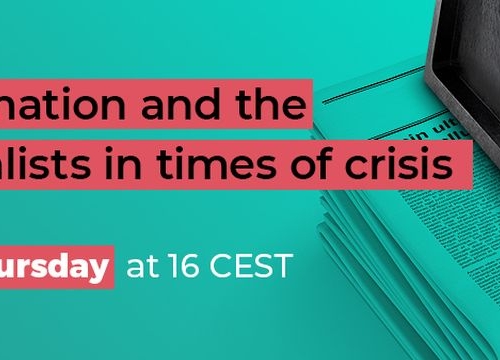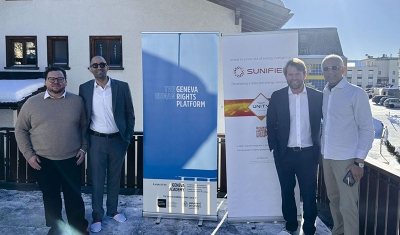Right On: Access to Information and the Safety of Journalists in Times of Crisis
Right On


Diplo Foundation
In times when public authorities must take significant decisions that affect public health, civil liberties and people’s prosperity, the public’s right to access information about such decisions is vital. Governments must, under international human rights law, protect the right to freedom of expression, including the right to seek, receive, and impart information of all kinds, regardless of frontiers. In times of crisis, the provision of reliable information in accessible formats to all, including by ensuring access to the internet, is crucial for governments’ efforts to protect the public.
Free, independent, plural and diverse media have proven to be an indispensable ally of governments and public authorities in informing the public, enabling individuals to exercise their rights to seek and receive information and to develop opinions so that they can make informed decisions and appropriate steps to protect themselves and their communities. Furthermore, ensuring media pluralism and strengthening professional journalism plays an important role in countering harmful mis- and disinformation. In this context, more than ever, protecting journalists and media workers must include not only their physical but also their legal and economic safety. Attacks on journalists must be followed by effective investigations with a view of prosecuting and punishing those responsible.
This webinar will look at challenges for the right to access to information in times when most governments need to come up with strategies to mitigate the effect of the COVID-19 pandemic on their societies, including its human rights impacts and the repercussions on their health systems and economies. It will discuss the importance of the right to access to information and of free, independent, plural and diverse media for inclusive and peaceful societies and democracies, for holding public institutions and officials accountable and for good governance.
Panelists will also consider the specific, increased risks for journalists reporting on governments’ social and economic policies and the importance of an enabling environment for journalism, which includes their economic safety.
The webinar is organised by Austria, Canada and the Netherlands in partnership with the RightOn initiative and co-sponsored by members of the core groups on the resolutions on Freedom of Expression and Safety of Journalists at the UN Human Rights Council.
Speakers
- Michelle Bachelet, United Nations High Commissioner for Human Rights
- Agnes Callamard, UN Special Rapporteur on extrajudicial, summary, or arbitrary executions
- Fatou Jagne Senghore, Human Rights Expert, specialised in the African regional system of human rights, freedom of expression, and access to information
Change of Time
This RightOn event will exceptionally take place on Thursday 4 June at 16:00.
Video
Right On: Access to Information and the Safety of Journalists in Times of Crisis
In this online event of the ‘Right On’ digital initiative, panelists discussed challenges for the right to access to information in times when most governments need to come up with strategies to mitigate the effect of the COVID-19 pandemic.
‘Right On’: The Online Web Chat
‘Right On’ is a new digital initiative – co-organized by the Geneva Academy, the Geneva Human Rights Platform, the Geneva Internet Platform, the DiploFoundation, the Universal Right Group, the Human Rights Centre at the University of Essex, as well as the Permanent Missions of Denmark, Norway and the Netherlands to the United Nations in Geneva – that will keep the human rights dialogue going during these COVID-19 times.
Every Wednesday at 15:00, experts and practitioners will discuss key human rights issues related to the current health crisis.











